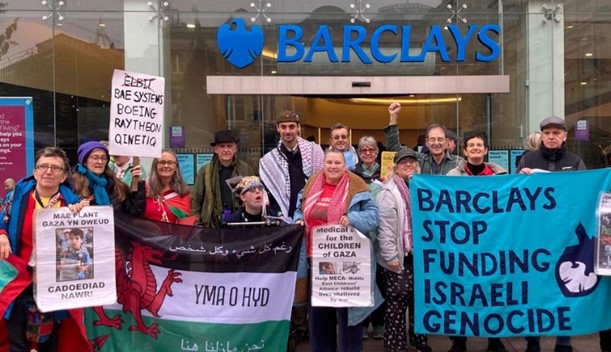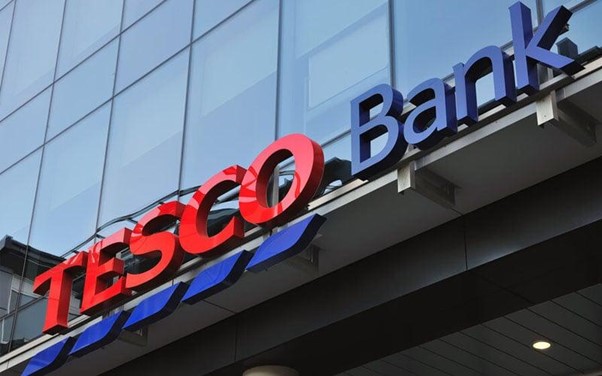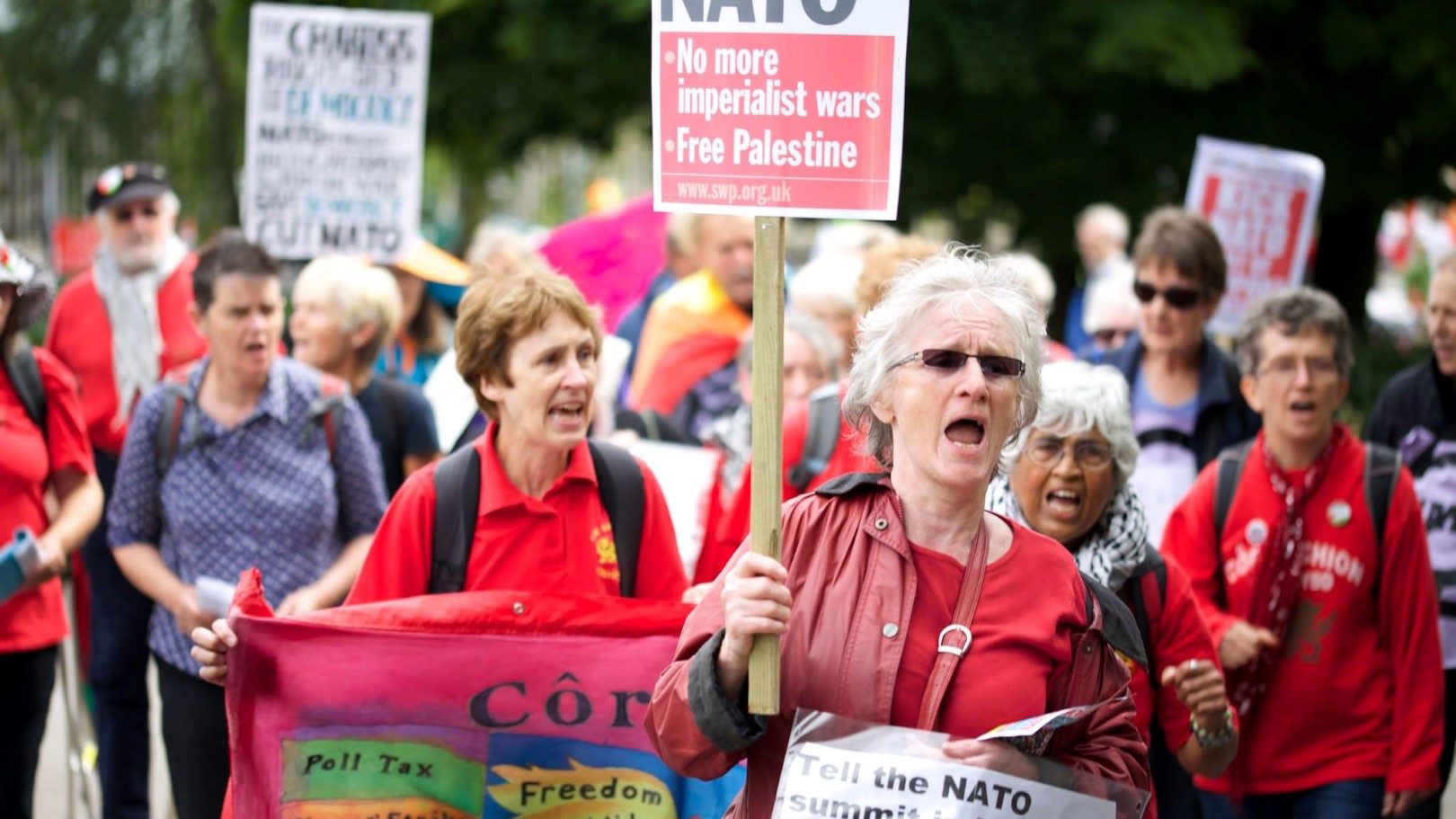Local campaigners urge account holders to join a UK-wide ‘mass closure day’ on 20 March to protest the bank’s ties to the Israeli government and military.

Pro-Palestinian activists in Cardiff are imploring customers of Barclays and Tesco Bank to close their accounts over the company’s links to the Israeli arms industry.
Cardiff Palestine Solidarity Campaign (Cardiff PSC) and local Welsh language choir Cor Cochion are holding weekly protests outside Barclays’ city centre branch highlighting the bank’s financial ties to Israel and its defence suppliers. The activists are calling on customers to withdraw their business as part of an upcoming ‘mass account closure day’ on 20 March.
Clive Haswell, who co-chairs Cardiff PSC said, “Billions of pounds of shares are being recycled through the bank into Israel’s genocidal activities against the Palestinians.”
“This is a lucrative business for Barclays, but many customers are simply unaware that their investments support Israeli-state violence in Gaza and the occupied West Bank. We are asking customers ‘Do you know how your money is being used in Gaza?’ and calling out Barclays’ complicity in Israel’s crimes.”
The mass account closure day is a UK-wide action led by the Palestine Solidarity Campaign (PSC), a national activist organisation with local branches across the country.
The PSC say 5,000 people closed their accounts across 2024 as part of the ongoing initiative. One date is selected each month for customers to close accounts in unison and write to Barclays flagging their concerns over the services it provides to the State of Israel.

The PSC and other campaign groups say Barclays profits from services it provides to nine companies that supply weapons and military technology to Israel, which it uses unlawfully against Palestinian civilians in the Gaza Strip and illegally occupied West Bank.
A further criticism is the bank’s role as a so-called primary dealer in Israeli bond auctions, the financial market where governments can sell debt to raise funds.
Pro-Palestine campaigners say providing these services means Barclays “helps Israel directly to raise money to fund its genocide and apartheid against Palestinians”.
Barclays had planned to withdraw from Israeli government bond auctions due to boycott pressures but did a U-turn on the plans in August 2024 by recommitting to facilitate the sale of Israeli bonds.
In an undated statement published on the Barclays website, the bank said it does not “directly invest” in the nine defence companies but provides financial services to clients “including those in the defence sector” which also supply “Nato and other allies including Ukraine”.
The statement distances Barclays from its client operations and stresses the bank’s role as an intermediary player and that “governments are responsible for decisions on the implementation of arms embargoes”. Tesco Bank has not commented on the boycott publicly.
Barclays also said it recognised “the profound human suffering” caused by the “complex and long-running conflict” in Gaza, where a tenuous ceasefire between Israel and the Palestinian group Hamas is now in place.
Pro-Palestine campaigners in Cardiff reject these sentiments and say that Barclays could take a position in response to legal concerns around Israel’s use of military force against Palestinians.

Cor Cochion Caerdydd said, “Barclays is still financing the weapons manufacturers who provided Israel with the missiles it needed to turn Gaza to a city of tents, and to destroy homes and kill Palestinians in the West Bank. We must keep up the pressure on Barclays until it stops enabling Israel’s crimes.”
The Israeli military launched a campaign in Gaza to dismantle Hamas following an unprecedented cross-border attack in October 2023, in which approximately 1,200 people were killed and 251 were taken hostage.
Since then, more than 46,000 people have been killed through Israel’s widespread bombing of the territory, but many analysts believe the real number is far higher.
A 2024 UN assessment of Israel’s military use of bombs in Gaza since October 2023 found that it failed to effectively distinguish between civilians and militants during its widespread bombing of densely populated areas.
In December 2023, South Africa filed a case against Israel at the International Court of Justice (ICJ), alleging that Israel’s actions in Gaza violated the 1948 Convention on the Prevention and Punishment of the Crime of Genocide. While Israel denies the claim, the ICJ has stated that it is “plausible.”
As of today (7 March), the ceasefire between Israel and Hamas agreed in January is in crisis. Israel is demanding hostages be released without committing to a permanent deal, which falls outside the ceasefire terms. Hamas say they won’t hand hostages over until Israel sticks to its original commitment. Israel reports that 59 hostages are still held by Hamas in Gaza, with 24 believed to be alive.
Campaigners in Cardiff say boycotting is therefore a long-term strategy and part of a global movement to hold Israel accountable for its alleged crimes including war crimes, crimes against humanity and genocide against the Palestinians.
Haswell said, “What we want to do is have a conversation with the Welsh public so they can be informed. We want people to boycott Barclays to send a clear message. Getting [to speak] face to face with people is very effective, but it takes time and a lot of effort goes into it.”
“Boycotting is a long-term approach but we know it really works. By closing their accounts, Barclays customers can really make an individual difference for the Palestinian people.”
